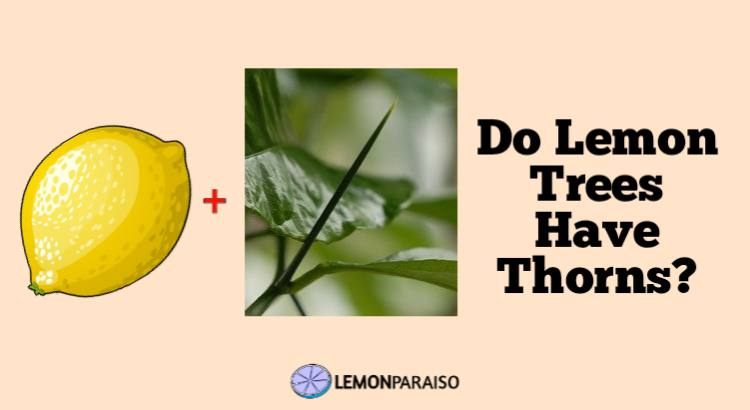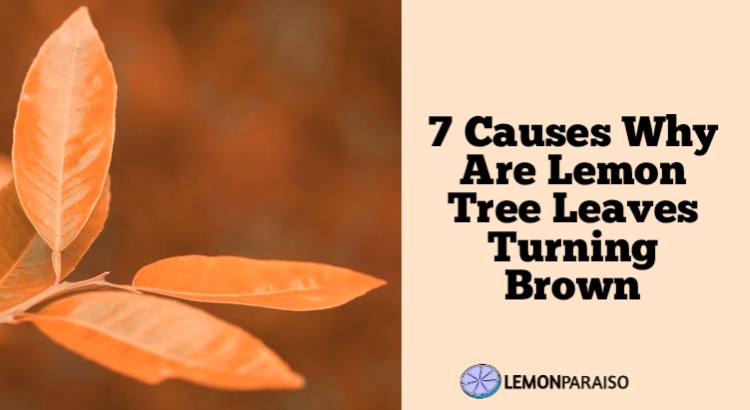Do Lemon Trees Grow In Arizona?
Lemon trees are a popular citrus fruit tree known for their tart and refreshing fruit. Many people wonder if lemon trees can grow in Arizona, given the state’s hot and dry climate. The answer is yes, lemon trees can thrive in certain parts of Arizona with the right care and attention.
Can Lemon Trees Grow In Arizona?
Lemon trees can indeed grow in Arizona, thriving in the state’s warm and sunny climate. Many citrus varieties grow well in the region, particularly in the southern parts of the state. The ample sunshine and heat Arizona experiences create an ideal environment for these sun-loving trees.
However, it’s essential to protect lemon trees from extreme temperatures, as they can be sensitive to frost and freezing conditions. Gardeners in Arizona should select a well-draining location and pay careful attention to their tree’s needs throughout the year. With proper care, lemon trees can be a beautiful and productive addition to any Arizona garden.
What Type Of Lemon Trees Grow In Arizona?
Various lemon tree varieties can grow successfully in Arizona. Eureka and Lisbon lemon trees are two common types grown in the state, prized for their juicy, tangy fruits. These two varieties are well-suited to Arizona’s climate, as they can tolerate higher temperatures and dryer conditions.
Improved Meyer lemon trees are also popular, as they are more cold-hardy and can better withstand occasional frosts. Other types of lemon trees grown in Arizona include Ponderosa and Pink Variegated Eureka, which offer unique fruit characteristics and visual appeal.
How Do You Care For Lemon Trees In Arizona?
Caring for lemon trees in Arizona requires attention to watering, fertilization, pruning, and pest management. Watering should be deep and infrequent, ensuring the soil is moist but not waterlogged.
In hotter months, increase the frequency of watering to account for evaporation. Fertilize lemon trees with a balanced citrus-specific fertilizer three to four times a year, following package instructions. Prune trees to maintain a healthy canopy and remove any dead or diseased branches. Monitor for pests and diseases, treating any issues promptly to maintain the tree’s health and vigor.
What Is The Best Time To Plant Lemon Trees In Arizona?
The best time to plant lemon trees in Arizona is during early spring or early fall. Planting during these seasons allows the tree to establish its root system before the extreme heat of summer or the colder temperatures of winter.
In early spring, the soil begins to warm, providing a suitable environment for root growth. Early fall planting allows the tree to benefit from cooler temperatures and increased rainfall, which can help ensure successful establishment.
Can You Grow Meyer Lemons In Arizona?
Meyer lemons can be successfully grown in Arizona, particularly the Improved Meyer lemon variety. This type of lemon tree is more cold-hardy than other lemon varieties, making it better suited to withstand occasional frosts or freezing temperatures.
Improved Meyer lemon trees also produce sweeter, less acidic fruit than other lemon types, making them a popular choice for home gardeners. With proper care, including watering, fertilizing, and protecting from extreme temperatures, Meyer lemons can thrive in Arizona gardens.
How Much Water Do Lemon Trees Need In Arizona?
Lemon trees in Arizona require deep, infrequent watering to maintain healthy growth. Watering once every 7-14 days during the summer and once every 3-4 weeks during the winter is typically sufficient.
The soil should be moist but not waterlogged after each watering, allowing the tree’s roots to access necessary moisture without becoming waterlogged. The specific water needs of a lemon tree can vary based on factors such as soil type, tree age, and weather conditions, so it’s important to monitor the tree’s health and adjust watering accordingly.
What Is The Ideal Soil For Lemon Trees In Arizona?
The ideal soil for lemon trees in Arizona is well-draining, fertile, and slightly acidic, with a pH between 6.0 and 6.5. Amending the soil with organic matter, such as compost or aged manure, can help improve fertility and soil structure.
If necessary, incorporate materials like perlite, sand, or pumice to improve drainage. Proper soil preparation is essential for lemon tree health, as it helps ensure that the tree’s roots have access to necessary nutrients, water, and oxygen. Monitoring soil pH is also important, as an imbalance can lead to nutrient deficiencies or other issues that can negatively impact tree growth and fruit production.
How Long Does It Take For A Lemon Tree To Bear Fruit In Arizona?
The time it takes for a lemon tree to bear fruit in Arizona varies depending on the variety and the tree’s age. Generally, lemon trees begin to produce fruit within 3-5 years after planting, with some varieties producing fruit as early as 2 years.
Grafted trees, which are often sold at nurseries, may bear fruit more quickly than those grown from seed. The fruiting process is influenced by factors such as tree health, environmental conditions, and proper care, so maintaining a healthy and well-cared-for tree will help ensure successful fruit production.
What Are The Common Pests And Diseases Of Lemon Trees In Arizona?
Lemon trees in Arizona can be affected by various pests and diseases. Common pests include citrus leafminer, aphids, scale insects, and spider mites. These pests can cause damage to the tree’s leaves, stems, and fruit, leading to reduced vigor and fruit production.
Diseases that can affect lemon trees in Arizona include citrus greening, root rot, and fungal infections like sooty mold or anthracnose. Proper tree care, including maintaining a balanced watering schedule, pruning, and monitoring for pests and diseases, can help minimize these issues and maintain tree health.
Can You Grow Lemon Trees In Pots In Arizona?
Yes, lemon trees can be grown in pots in Arizona, making them a suitable choice for gardeners with limited space or who want to move their trees indoors during extreme temperatures. Choose a large pot with ample drainage holes, and use a well-draining, slightly acidic potting mix to ensure the tree’s roots have access to the necessary moisture and nutrients.
Potted lemon trees require more frequent watering and fertilization than those grown in the ground, as nutrients can be depleted more quickly in containerized environments. With proper care and attention, lemon trees can grow and produce fruit successfully in pots in Arizona.


